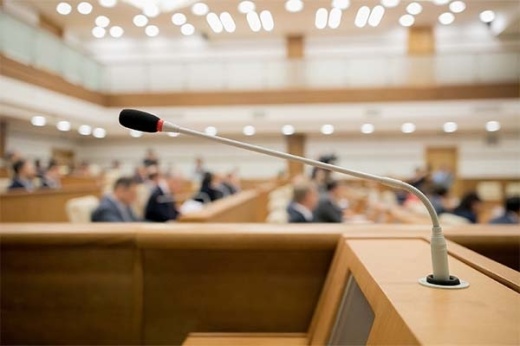The proposal from the Travis County Sheriff’s Office includes installing electronic tablets throughout the central booking facility to replace in-person attorney-client meetings and renovating its old magistrate courtroom, which will eventually create the space needed for attorney-client meetings. The renovation project is estimated to cost $650,000 and will take 10-11 months to complete.
The tablets would be used while the TCSO works to fill over 200 vacancies. Travis County has invested millions of dollars for recruiting, salary raises and bonuses to find and retain employees in the TCSO, County Judge Andy Brown said.
The tablets are being deployed and are expected to arrive in two weeks, said Roger Jefferies, public safety executive for Travis County. It is unclear how much the tablets cost.
No representatives from the TCSO attended the meeting; however, Jefferies shared an email from the office saying, “We are hopeful for what the technology solutions will bring, but our limited staffing remains a constraint.”
Despite support from the TCSO, public defenders and commissioners are concerned by the limitations and threats to confidentiality virtual client meetings may bring.
”[We’re] waiting on technology that is unseen, unproven and may very well have limitations,” said Bradley Hargis, executive director of Capital Area Private Defender Service.
The vendor for the tablets is a third-party, London-based company called Viapath, which has been sued in the past by other agencies for disclosing attorney-client communication, Hargis said.
Chief Public Defender Adeola Ogunkeyede said the tablet solution has many setbacks, from an inability to have candid conversations with clients to measurable outcomes in bond amounts.
“If one does not feel that they have confidentiality around them, they are less likely to provide relevant, important information, which harms the lawyer's ability to advocate for an appropriate decision from the decision-maker,” Ogunkeyede said. “In one study, people who were represented virtually had bond amounts up to $20,000 more than other clients who were similarly situated.”
While commissioners echoed the concerns regarding the lack of function and confidentiality in the tablets, they also expressed the need for a short-term solution while the TCSO works to fill its vacancies and renovates the courtroom.
Hargis said because Texas A&M pulled their $500,000 grant funding, any meaningful steps forward in the project will require renewing funding or finding a new funding source.
“If you feel this is inadequate, and there is a better system that can and should be put in place, let's identify what that is and what that cost is,” Commissioner Jeff Travillion said.
Commissioners and public defenders will continue to meet to draft temporary solutions.
“This is probably the most important thing we need to address, so we’ve got to be walking and chewing gum at the same time,” Commissioner Ann Howard said.





